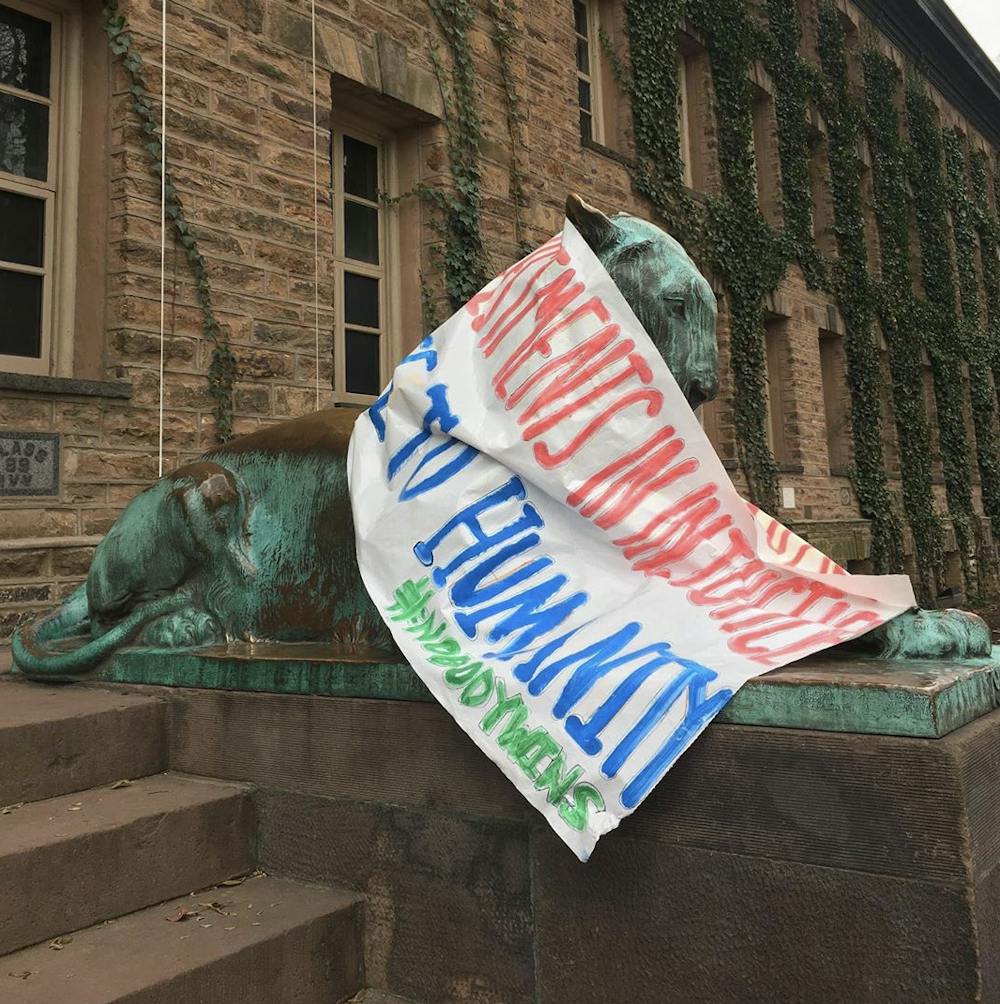The following is a guest contribution and reflects the author’s views alone. For information on how to submit an article to the Opinion Section, click here.
It has been three months since the undergraduate student body decisively voted to dissociate and divest Princeton’s endowment from the fossil fuel companies pillaging our planet. It has been seven months since Divest Princeton began discussing its proposal with the University’s Resources Committee, demanding that Princeton undertake these measures “in the service of humanity.” It has been one year since our proposal was first submitted, five years since the proposal before that, six years since the proposal before that, and eight years since the proposal before that.
We cannot wait another eight weeks, let alone another eight years, for Princeton to respond. This is why, today, we demand that the Board of Trustees vote to divest and announce their verdict by Earth Day, April 22.
We organizers — students, alumni, parents, faculty, and staff spanning over five decades in the Princeton community — have done everything asked of us. We have shown massive support for fossil fuel divestment and dissociation, organizing the fourth largest petition in Princeton’s history. We have hosted forum after forum after forum to educate ourselves, our peers, and the administration. We have earned endorsements from many leading Princetonians — a senator, a congressman, and a Canadian Green Party leader, to name only a few — as well as prominent climate scientists from Princeton and beyond. Even Jane Goodall has endorsed us.
We have spoken at length about the many merits of divestment, and we have listened as well, refining our proposal as we have learned from new perspectives. Though we recognize the need for urgent change, we have remained patient. We have, at all times, negotiated in good faith with the University.
Some say this faith isn’t warranted, and that Princeton has contrived excuses for inaction many times before. Others note that universities regularly stymie movements like ours simply by waiting on leaders to graduate, and by punting controversial decisions to the summer when student activists have all gone home.
These concerns are not lost on us. Indeed, we have many reasons to tread carefully down the road ahead. But with so many generations of Princetonians now calling for divestment, and with our members well-practiced in organizing remotely, ours is not a cause to be easily outlasted. Delay tactics won’t get rid of us. The administration must act now.
It has, after all, been a half-century since Princeton’s Syukuro Manabe first linked global warming to carbon emissions, pioneering the study of climate change as we know it today. It has been three years since the International Panel on Climate Change — whose contributors include Princeton’s own Professor of Geosciences Michael Oppenheimer — warned that “rapid and far-reaching transitions” are needed to limit global warming to 1.5ºC by mid-century. It has been three-and-a-half minutes, on average, since the last preventable death by climate change.
Peer institutions like Cornell, Columbia, Brown, Oxford, and Cambridge have all divested from companies at the root of this crisis — companies like ExxonMobil, with whom Princeton continues to conduct research, and whose leaked documents reveal plans to develop even more fossil fuels in the next five years. The combustion of these fuels will emit 100 million tons of carbon dioxide, a middle finger to Princeton’s Andlinger Center and many other scientific “partners.”
Princeton cannot “change these companies from within.” Enough fantasizing that these companies will find — that they want to find — antidotes to their own poisons. We don’t have time to cling to such faint hopes.
We know that divestment works as both a symbolic and material lever for change. We know too that, without any action, many of tomorrow’s leaders will shun Princeton in favor of universities more considerate of their livable futures. We have, regrettably, heard from several would-be applicants who have already crossed Princeton from their lists.
We cannot sit by while Princeton launders the reputations of Earth’s greatest foes, cheapening its own good name in the process. To that end, we have provided our University countless hours of unpaid consulting, helping our leaders to make decisions in their own financial, academic, and reputational interests. Eventually, though, we must trust that our leaders have heard all they have needed to hear, and that they are prepared to do the right thing.

Today, the countdown begins — not for vague, timid promises to invest more sustainably, pursue a “net-zero endowment,” or divest only from select fuels like coal — but for broad, meaningful commitments. Today, we call upon all Princetonians — past, present, and future — to take action and join us in these, the most important, 46 days of our campaign.
April 22 is Earth Day, and Princeton has delayed long enough.
This article was written by Ryan Warsing on behalf of Divest Princeton, a volunteer organization urging the University to divest and dissociate from unsustainable fossil fuel companies. Warsing is an MPA candidate (Class of 2021) and co-coordinator of Divest Princeton. He can be reached at rwarsing@princeton.edu.








